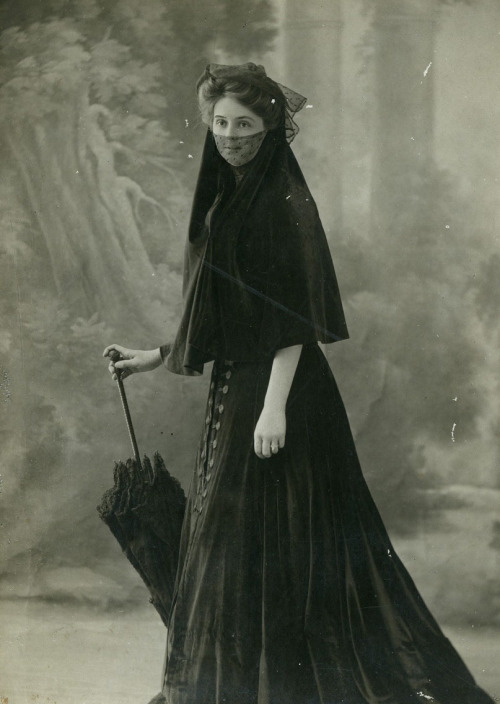#renée vivien
Et mon cœur bat moins fort, et mon âme s'enfuit. / Et je n'aperçois plus la lueur sur la route.
Renée Vivien, “Déroute”, dans Haillons.
Ne jamais plus se tourmenter ni s'enflammer / Surtout, ne plus aimer ! Ô Dieux ! Ne plus aimer!
Renée Vivien, “Souhait familier”, dans Haillons.

Ses cheveux sont comme une gloire autour de son front pâle. Elle a dû chérir d'une tendresse très douloureuse un passé dont elle n'ose se souvenir.
Renée Vivien, Une femme m'apparut…
Eva Palmer, vers 1900.
Elle s'est endormie un soir, croisant ses bras, / Ses bras souples et blancs sur sa poitrine frêle, / Et fermant pour toujours ses yeux clairs, déjà las / De regarder ce monde, exil trop lourd pour elle. // Elle vivait de fleurs, de rêves, d'idéal (…)
Charles Cros, Le coffret de Santal, réédité aux frais de Renée Vivien en 1903.
Je t'ai trop aimée pour ne pas te craindre éternellement. J'avais perdu l'espoir et la confiance depuis… Depuis toi !
Renée Vivien, Une femme m'apparut...
Et nous savons qu'à côté de l'amoureuse et de l'écrivain, il existe une Vivien plus quotidienne, plus simple, modeste, fine, amusante, en même temps que délicate et attentive aux autres.
Jean-Paul Goujon, Le Jardin turc. Prose inédite suivi de Dix lettres à Kérimé.
Et quelle tristesse, lorsque j'évoquerai la maison charmante où je t'ai aimée, où je t'ai rencontrée pour la première fois. Ma si belle, ma si tendre amie, combien de souvenirs, déjà, entre nous !
Lettre de Renée Vivien à Kérimé, 1905.
Depuis que je t'ai quittée, je vis obsédée de ta magique et souveraine image. Ah ! Tes yeux nostalgiques de princesse captive ! – ta mystérieuse chambre nocturne et tes lèvres de tentatrice elle-même tentée !… Ton souvenir chante en moi, rayonne en moi, embaume au fond de mon être. Tu es mon parfum, tu es l'incessante musique amoureuse qui s'élève dans ma solitude.
Lettre de Renée Vivien à Kérimé, 1905.
Sorrow is stronger than joy. One can forget joys, one never forgets sorrow. I am your suffering, that is why you can never stop loving me. Suffering alone is true, happiness isn’t.
Renée Vivien, A Woman Appeared to Me (tr. by Jeannette Howard Foster)
‘When she [Pauline] got rid of the governesses and even of the guardian and began to write poetry and have poets come to see her, Mr. Shillito had forbidden any further friendship between the girls and her. She was no longer comme il faut. So Violet saw her seldom now—it was difficult to manage meetings. She slept all day and the Shillito girls slept at night! But once in a while Violet stole up there late to Pauline, who adored her younger friend and felt her rarity. Violet spoke of Pauline, three years her senior, as one would of a beautiful, helpless child: “Pauvre chérie!”’
— Mabel Dodge Luhan,Intimate Memories, Vol. I: Background, 1933
‘On the floor above the Shillitos there lived another mysterious girl. They told me about her—the beguiling, lovely Pauline Tarne, whose parents were dead and who had all the money she wanted and who lived there alone, writing poetry alone at night in a kind of hidden chapel in which she burned incense. She and the Shillitos had played together in the Bois when they were little girls, and she had had a governess and a guardian. When she reached eighteen years of age she had been presented at court in England. Violet had a little photograph of her in a long white train. Her mutinous face looked eager and beautiful.’
— Mabel Dodge Luhan,Intimate Memories, Vol. I: Background, 1933
Renée Vivien,Sonnet, from Évocations, 1903
“[Sonnet] it’s a highly revealing character study of Natalie [Clifford Barney] and a lucid description of her “être double”—the double being inherent in this child of witches and saints.
To Pauline [Renée Vivien], Natalie encompassed the natures of both Hamlet and Ophelia. She is at once female and male; soft and hard; light and dark; joyous and tragic. By embodying such disparate but alluring qualities, she escapes definition or understanding, becoming a never-ending journey into the unknowable. She is inscrutable, unsolvable, a mystery. She doesn’t just attract, she attracts doubly. Indeed, Sonnet goes a long way toward illuminating the compelling allure Natalie had to so many.”
— Suzanne Rodríguez, from Wild Heart: A Life, Natalie Clifford Barney and the Decadence of Literary Paris
Post link
“In my heartbreak, night was merciful And as tender as a lover could be. It’s a rare night that shows itself merciful”—Renée Vivien, from Birds in the Night; The Muse of Violets: Selected Poems (tr. by Catharine Kroger)


![Renée Vivien, Sonnet, from Évocations, 1903 “[Sonnet] it’s a highly revealing character study of Nat Renée Vivien, Sonnet, from Évocations, 1903 “[Sonnet] it’s a highly revealing character study of Nat](https://64.media.tumblr.com/8d736a104c81f66b7775a54c91372be1/d416310d009ce74f-17/s500x750/d3907c812b0194a42b38fa375f014815f881acc5.png)